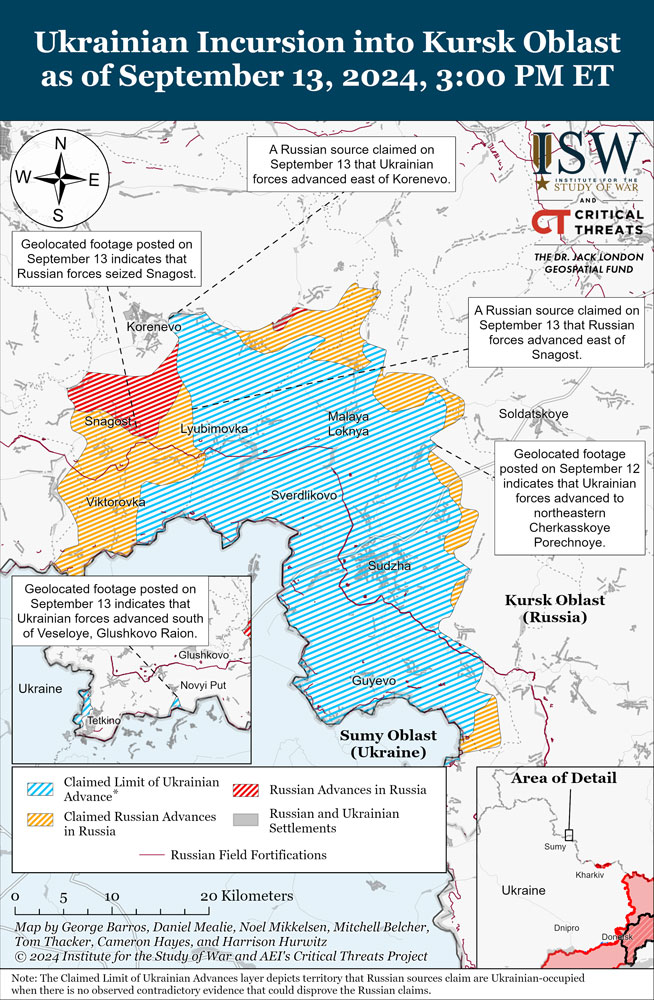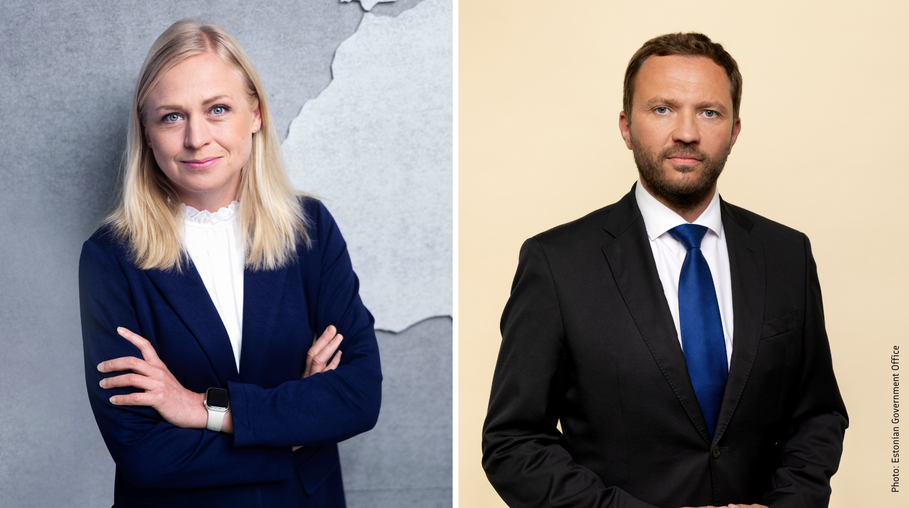ISW: Russians may struggle to maintain offensive tempo in Donetsk after Kursk redeployments
Ukraine's incursion into Kursk Oblast reportedly disrupted Russia's new offensives in northern Ukraine and slowed advances in Donetsk, Ukrainian officials say, per ISW.


Ukrainian President Volodymyr Zelenskyy announced on 13 September that a recent Ukrainian operation in Russia’s Kursk Oblast has disrupted Moscow’s plans for major offensives along Ukraine’s northeastern border, ISW reports. According to Zelenskyy, Russian forces intended to create several buffer zones “from the east to the north,” including in Sumy Oblast, with the aim of launching significant offensives to seize regional centers, likely referring to Sumy and Kharkiv cities, per ISW.
The Ukrainian incursion in early August has reportedly spoiled planned Russian offensive operations that aimed to expand the area of active combat across a broader front in northeastern Ukraine. Zelenskyy stated that the operation has also impacted Russian operations in Donetsk Oblast, slowing their advances and reducing the artillery ammunition advantage Russian forces had in the Pokrovsk direction from 12-to-1 to 2.5-to-1.
Ukrainian Commander-in-Chief General Oleksandr Syrskyi corroborated this assessment on 5 September, stating that the incursion had spoiled a planned Russian attack into Sumy Oblast and “reduced the threat” of Russian incursions into northern Ukraine.
Ukraine’s Main Military Intelligence Directorate (GUR) Head Lieutenant General Kyrylo Budanov, in an interview published on 7 September, further elaborated that the Kursk operation had complicated Russia’s plans for offensive operations, including in their “main direction” (likely referring to the Pokrovsk direction in Donetsk Oblast), in August 2024 and later this fall.
There are indications that Russian authorities have transferred limited elements of likely reserve units from Donetsk Oblast, including from the Pokrovsk direction, to Kursk Oblast to counter the Ukrainian incursion.
“Such limited redeployments are unlikely to have an immediate impact on the tempo of Russian offensive operations, although Russian forces may struggle to maintain their current offensive tempo into the future if Russian authorities conduct additional redeployments from reserve forces in Donetsk Oblast,” ISW says.
The Institute for the Study of War (ISW) previously assessed that Russian offensive operations in northern Kharkiv Oblast aimed to fix Ukrainian manpower and matériel along the northern border, potentially creating opportunities for re-intensified offensive operations in other higher-priority areas of the theater. Ukrainian forces have largely stabilized the frontline in the Kharkiv direction since Summer 2024 and continue to contest the tactical initiative through counterattacks that have regained limited positions in northern Kharkiv Oblast.
Related:
- ISW: Ukrainian, Russian forces make marginal gains near Toretsk, Russians capture village near Pokrovsk
- Ukrainian soldiers are holding their ground amid fierce battles in Kharkiv and Kupiansk fronts
- Anxiety among Russians soars to 49% amid Ukraine’s incursion in Kursk Oblast
- US, UK spy chiefs praise Ukraine’s Kursk incursion, say West shouldn’t fear Russia’s nuclear threats
- Gen. Syrskyi: Kursk operation successfully reduced threat of Russian offensive on Sumy
You could close this page. Or you could join our community and help us produce more materials like this.
We keep our reporting open and accessible to everyone because we believe in the power of free information. This is why our small, cost-effective team depends on the support of readers like you to bring deliver timely news, quality analysis, and on-the-ground reports about Russia's war against Ukraine and Ukraine's struggle to build a democratic society.
A little bit goes a long way: for as little as the cost of one cup of coffee a month, you can help build bridges between Ukraine and the rest of the world, plus become a co-creator and vote for topics we should cover next. Become a patron or see other ways to support.



